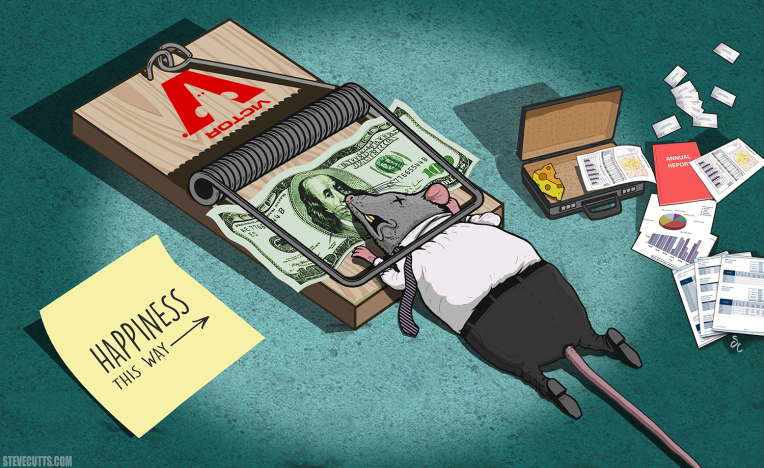
As our world increasingly becomes dominated by materialistic desires, the subtle allure of minimalism is resurfacing. Less, as it turns out, is not only more; it’s an opportunity for freedom. Freedom from financial burdens, societal expectations, and ultimately, the exploitative system constructed by corporations to serve their interests.
In an era characterized by the necessity to constantly upgrade, to own the newest, fastest, most efficient models of everything from smartphones to cars, we find ourselves on a treadmill of consumption. The price is not merely measured in dollars, but in hours, days, and years of our lives. These are the hours traded in order to possess the material goods dangled in front of us by those who profit from our desires.
The art of business is largely about identifying a gap, a need, or in many cases, creating that need. Companies market their products not just as mere objects, but as tickets to better lifestyles, elevated status, and perceived happiness. They have a profound understanding of our longing to belong, to be accepted, and to be admired. They exploit these feelings, trapping us in an endless cycle of consumerism.
Think about that new smartphone you’re coveting. The manufacturers aren’t merely selling you a piece of technology. They’re selling you the promise of a better life, the illusion of superiority, and the opportunity to be like everyone else. They’re selling you the idea that you’re incomplete without their product. To achieve this, they’ve turned to the strategy of long-term monthly payments, an appealing illusion that makes the unaffordable, affordable, and the unnecessary, necessary.
This strategy is a double-edged sword. On the surface, it offers consumers the chance to own products that may otherwise be out of their financial reach. But it’s also a subtle, yet powerful, form of enslavement. Each monthly payment is a reminder of the chains that bind you, tying you to a cycle of work and spend, work and spend. It’s a transaction where corporations become wealthy, trading tangible products for intangible hours of your life.
So, how do we break these chains? By understanding that less is an opportunity for freedom. Freedom from the hamster wheel of consumerism, from the constant need for more, from the feeling of never having enough. It starts by acknowledging that our value is not determined by what we own, but by who we are.
Embracing minimalism is not about renouncing all possessions. It’s about understanding what truly matters. It’s about making conscious choices about what we bring into our lives, and what we choose to let go of. This perspective allows us to reclaim the hours of our lives, trading them not for fleeting materialistic gains, but for experiences, relationships, and personal growth – commodities that bring lasting satisfaction and genuine happiness.
The less we strive to have, the more freedom we gain. In this freedom, we find the space to grow, to live, and to simply be. In the end, the choice is ours. We can continue to play the game set by corporations, trading our hours, our days, and our lives for products. Or, we can choose to step off the treadmill, embracing the liberating power of less. This isn’t a call to abandon all material possessions, but a call to reconsider what truly brings value to our lives.
Perhaps it’s time we redefine wealth, not by the number of things we own, but by the quality of the life we live. And maybe then, we’ll find that having less isn’t about sacrifice, but about finding freedom and genuine happiness in a world that constantly tells us we need more.

0 Comments